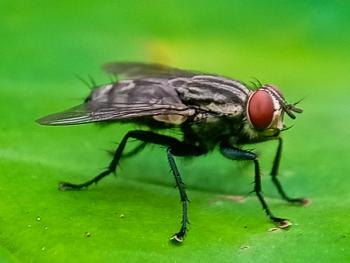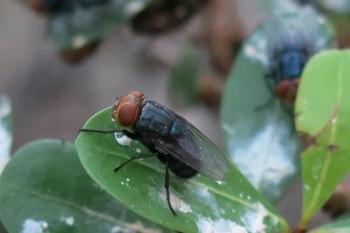
Survey says fleas top spring health risk
Duluth, Ga.-According to a survey sponsored by Merial, veterinarians believe fleas will be the number one health risk for pets this spring and summer.
Duluth, Ga.-According to a survey sponsored by Merial, veterinarians believe fleas will be the number one health risk for pets this spring and summer.
The issue is most important for cats, named by the respondents as the pet least protected from these parasites by their owners.
On behalf of Merial, Triton Technologies conducted a survey of more than 300 veterinarians and veterinary clinic staff at the 2004 North American Veterinary Conference in Orlando. The survey determined which parasites veterinarians believe will pose the greatest health risks to pets as warmer weather arrives.
Fifty percent of those surveyed named fleas at the top of the list of parasites that constitute the most significant medical issues in their practice. Veterinarians and their staff voiced particular concern about cats and fleas with 70 percent of respondents saying cat owners don't pay enough attention to protecting their pets from parasites.
According to Dr. Zack Mills, Merial's executive director, veterinary professional services, "A vast majority of cat owners do not understand the importance of flea control in cats and that the use of preventives such as Frontline are effective in treating and controlling fleas. Even indoor cats, especially those that live with a dog in the household, should be protected from fleas that may cause painful diseases such as flea allergy dermatitis. Pet owners need to take precautions in order to prevent flea infestation both on their pets and in their homes."
The company says additional results concluded that 61 percent of veterinarians identified fipronil, the active ingredient in Frontline, as the most effective flea/tick preventive ingredient available.
Heartworms were the next most frequently mentioned parasite, according to the survey with 28 percent of veterinarians and staff identifying them as a health risk to pets. Heartworm disease ranked second behind fleas as the medical condition that most concerned veterinary professionals. Respondents named ticks as the third most prevalent pet health threat at 11 percent.
The survey found that West Nile Virus is believed to pose a much smaller health concern for dogs and cats. When veterinarians were asked to rank the importance of various pet health problems (flea and flea-related disease, heartworm disease, roundworm and/or hookworm disease, ticks and tick-transmitted disease, tapeworms and West Nile Virus), West Nile Virus was ranked as the least significant medical issue.
"In terms of mosquito-borne disease, heartworm is the most deadly to pets because of the high incidence rate and dogs' susceptibility," Mills says. "Furthermore, the disease can be complicated because many pets do not show signs of infection until the advanced stages of the disease. On the other hand, dogs are typically resistant to West Nile Virus and rarely show clinical signs."
Newsletter
From exam room tips to practice management insights, get trusted veterinary news delivered straight to your inbox—subscribe to dvm360.





